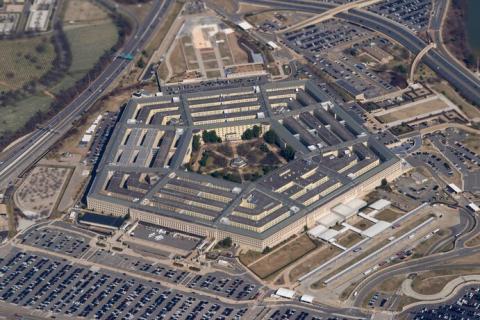
British PM during 9/11 attacks calls for preparation to counter ‘bio-terror’
‘Overwhelming political constraint on military interventions’ represents challenge for UK, Europe, NATO
LONDON: The West still faces the threat of large-scale terror attacks by radical Islamist groups, but this time using bio-terrorism, Britain’s former Prime Minister Tony Blair has warned.
He made the comments in a speech marking two decades since the 9/11 terror attacks that killed nearly 3,000 people in the US.
Blair, who was prime minister at the time of the attacks, said Islamist terror remains an acute threat but may arrive in a different form, one influenced by the events of the last two years.
“Despite the decline in terrorist attacks, Islamism, both the ideology and the violence, is a first-order security threat; and, unchecked, it will come to us, even if centered far from us, as 9/11 demonstrated,” he added.
“COVID-19 has taught us about deadly pathogens. Bio-terror possibilities may seem like the realm of science fiction, but we would be wise now to prepare for their potential use by non-state actors.”
In his speech, Blair appeared to contradict the views of US President Joe Biden by suggesting that nation-building must remain a key tool in the American foreign policy arsenal, saying drone strikes and special forces alone cannot defeat radical Islamism.
Biden recently declared that the US withdrawal from Afghanistan has turned the page on the American era of nation-building.
Blair appeared to admit that nation-building in Afghanistan — which was seized unexpectedly quickly by the Taliban following the US troop withdrawal — was a failure, but said structural issues in the Afghan government and external actors, which he did not name, were responsible.
“Our ‘remaking’ didn’t fail because the people didn’t want the country ‘remade.’ For sure, we could have ‘remade’ better, but Afghans did not choose the Taliban takeover,” he added.
“The last opinion poll in 2019 showed them (the Taliban) with 4 percent support among the Afghan people. They conquered the country by violence not persuasion. The barrier to ‘nation-building’ is usually not the people, but poor institutional capacity and governance, including corruption, over many years; and most of all the challenge of trying to build whilst internal elements combined with external support are trying to destroy.”
He continued: “For me, one of the most alarming developments of recent times has been the sense that the West lacks the capacity to formulate strategy, that its short-term political imperatives have squeezed the space for long-term thinking.
“It is this sense more than anything else which gives our allies anxiety and our opponents a belief our time is over.”
For Europe, he said, the most pressing security issues could come from the Sahel — a vast region in Africa comprising Mali, Niger, Nigeria, Burkina Faso and other countries — which has experienced a surge in extremist violence that regional governments have failed to stamp out.
“We do not have the capacity to help those countries govern their space or get on their feet,” Blair added. “Are we going to let the situation fester until finally we get waves of extremism and waves of migration coming from there, or are we going to deal with it?”
But despite the security threat, he said, there is “now an overwhelming political constraint on military interventions,” and this represents a challenge for Britain, Europe and NATO.
“We do not have the capacity to help those countries govern their space or get on their feet,” Blair added. “Are we going to let the situation fester until finally we get waves of extremism and waves of migration coming from there, or are we going to deal with it?”
But despite the security threat, he said, there is “now an overwhelming political constraint on military interventions,” and this represents a challenge for Britain, Europe and NATO.
“If the enemy we’re fighting knows that the more casualties they inflict, the more our political will to fight erodes, then the incentive structure is plain.”












